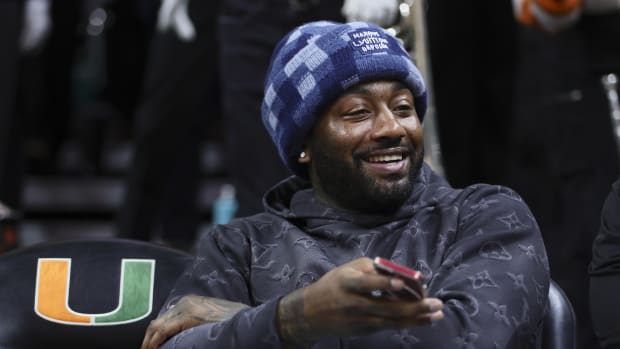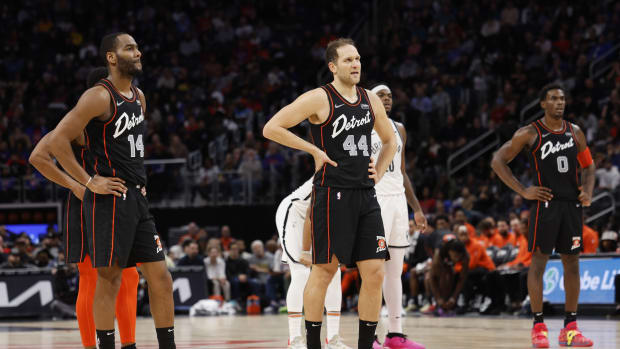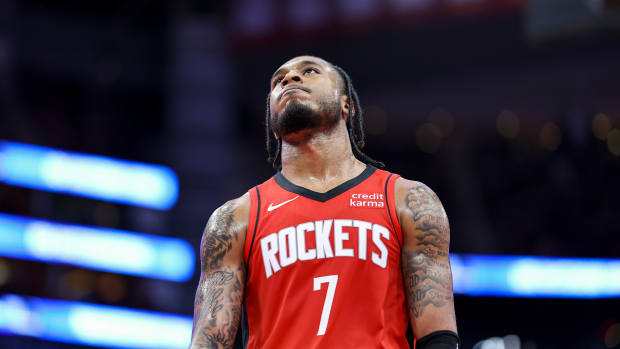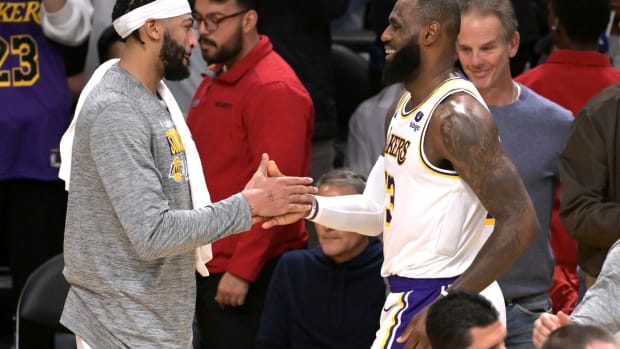Assigning Blame for Kevin Durant’s Achilles Injury Isn’t That Simple
The aftermath of Kevin Durant’s torn Achilles—suffered during Golden State’s rollercoaster win in Game 5 of the Finals—has quickly devolved into determining who deserves the blame for Durant’s injury. Is it the Warriors, who should have protected KD from himself and held him out until he was completely healthy? Is it the media, who began creating external pressure on Durant to return to prove how badly he wanted to win? Is it Durant’s own circle, who let him on the court in conflict with his self-interests? Honestly, there’s an argument to be made for every single one of these questions. The truth of the Durant matter is that his Achilles tear goes beyond only what happened in the days between Game 4 and Game 5.
The culture of injuries in sports is probably the most to blame for what happened to Durant, a culture that pushes athletes to disregard their self-interests all the time. As inspiring as it’s been to see someone like Kevon Looney push through his insane cartilage fracture or whatever the hell is ailment is, should he really be on the court? DeMarcus Cousins provided his own heroics in Game 5, but he’s also looked a step slow for much of this series—is it worth celebrating his performance if he rushed back from his torn quad? I’m contributing to the lionization of these players as much as anyone else. It’s remarkable to watch these athletes push their bodies to the absolute physical limit in the pursuit of a collective goal. But expecting them to do it—and criticizing those who don’t want to—is how someone like Durant ends up pushing a serious injury into a devastating one.
Durant’s case is especially unique, because not only did he face the pressure of “not being there for his teammates,” he’s dealt with an immense level of scrutiny over the last three years of his career. It remains okay, on a basketball level, for you to have not been a fan of KD’s decision to join the Warriors. NBA players are human, but the NBA itself is an entertainment product, and that’s what Durant’s decision many felt was disserving. But I’m seeing a lot of the same people who killed Durant for joining Golden State—myself very much included—outpour sympathy for someone who they’ve routinely joked about for years. I’m not saying it’s impossible to feel both. I don’t think everyone is a sociopath, and just because people didn’t want to see Durant on the Warriors doesn’t mean they wanted him to start blowing out ligaments. But the truth is even the people who feel awful about his injury today, if they were piling on Durant for years about how much he ruined the NBA, they (and again, I’m in this group) probably helped contribute to the pressure he felt to play.
If there’s any sort of silver lining in this situation, it’s that Durant’s injury may finally start to open up a conversation about how players are handled moving forward. Many athletes will probably share stories over the next few days of the times they had to suit up despite not being 100%, and doing it for fear of losing their job or losing face with their teammates. The confluence of factors around Durant—the severity of his injury, his stature as one of the game’s best players, his upcoming free agency—make what happened to him particularly striking. If all of this could happen to Durant, then it could obviously happen to anyone in the league.
Saying the Warriors shouldn’t have put Durant on the court (we’ll get back to this, though) doesn’t really get to the root of the problem. If any good is going to come from this injury, it’s more people realizing that the discussion around athletes and their bodies needs to change. We can celebrate players who decide to push through their injuries for their teammates, but people have to stop criticizing the ones who have too much to lose to take that risk. That’s not being selfish, that’s being smart.
The undercurrent to the Durant story is the Warriors training staff. Remember, both Looney and Cousins were ruled out for the postseason, and yet both returned. Looney was told he couldn’t hurt himself anymore if he played through his injury—except he hurt himself more in Game 5. The training staff told Kerr that Durant couldn’t hurt himself any further as well. Regardless of what’s happening with this particular medical staff, Durant’s injury is perhaps the best reason yet for the Players’ Association to push for some kind of involvement of independent doctors. I really don’t believe Golden State acted maliciously in the case of Durant. But why are leagues ever putting doctors and training staffs in a situation in which they feel pressure—either explicit or implicit—to give medical advice at the behest of one entity over another. That’s another sportsism that’s largely been accepted with rare and inconsistent scrutiny. Again, if any injury could start a conversation about that setup, it’s what happened to Durant.
There will be more fallout to Durant’s injury, and many more storylines will emerge about what it means for the league, both on and off the court. For now, assigning blame to one person or one staff is too simplistic. Maybe the Warriors did rush KD back, but this is also the same team that held Klay Thompson out of a Finals game not even one week ago. What happened to Durant was a perfect storm of bad sports things, from the way he’s been talked about the last three years, to the way athletes are criticized for valuing their bodies over the narratives assigned to them. (This is also where more transparency from Golden State about Durant’s injury would have helped everyone, but that ship has sailed.) If the people who feel awful about Durant after seeing him go down really don’t want to see a situation like this happen again, the conversation has to be about the larger factors involved, not just finding one party to pile on.


































